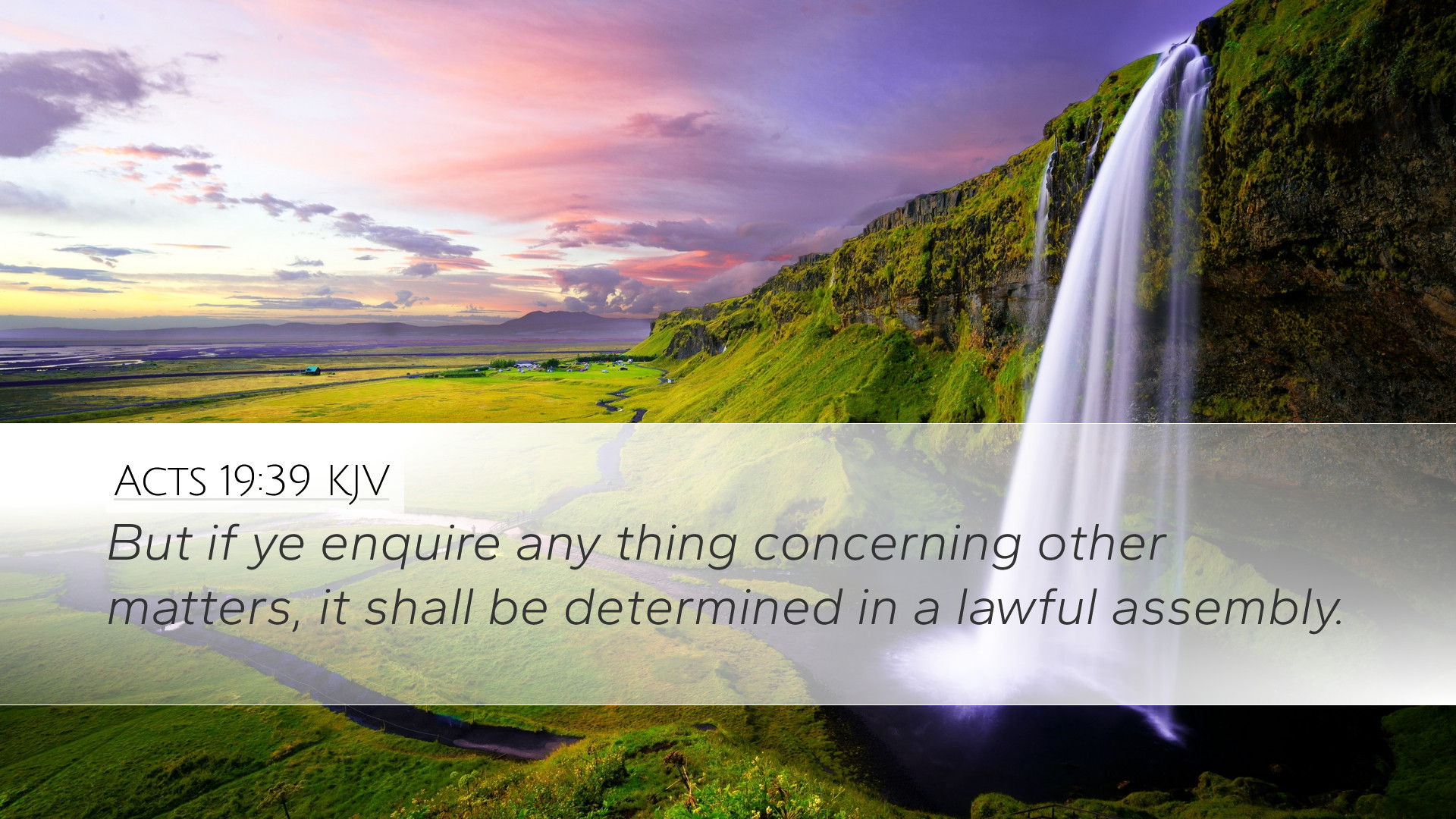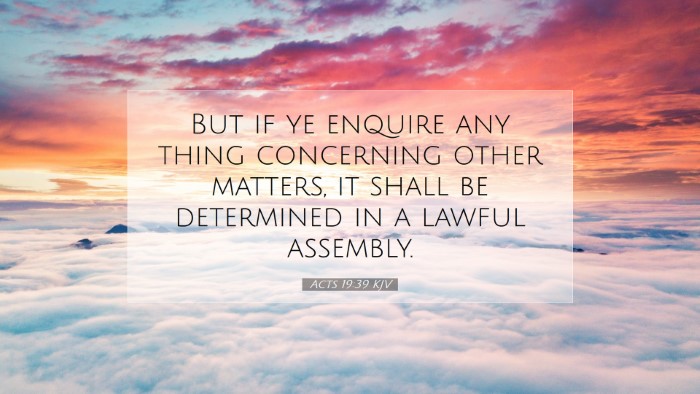Acts 19:39 - Summary and Commentary
Bible Verse: Acts 19:39 - "But if you inquire anything concerning other matters, it shall be determined in a lawful assembly."
Introduction
The context of Acts 19:39 finds Paul in Ephesus, amid a tumultuous situation where a crowd, incited by the silversmiths, was demanding justice against the Christian faith and its implications on their trade. This commentary will delve into the implications of this verse, exploring the significance of lawful assembly and order within the context of church and society.
Contextual Analysis
As studied by Matthew Henry, this verse occurs at a critical juncture where the balance of public order and individual rights are in contention. The city clerk calms the uproar, suggesting that if the people of Ephesus have a grievance, it should be addressed through lawful means, emphasizing the importance of civil institutions.
The Role of the City Clerk
The city clerk, depicted as a figure of authority, reflects on the need for order, suggesting that the chaos elicited by the mob could lead to dire consequences. Albert Barnes points out that his intervention signifies a transition from chaos to civility, advocating that all disputes should be presented within the context of law and legislation.
Theological Implications
Acts 19:39 serves as a pivotal reminder for believers and church leaders regarding the manner in which grievances should be addressed among themselves and within the wider community. The verse reiterates that while passionate for their beliefs, the Christians in Ephesus were encouraged to resolve issues through appropriate channels.
Order Versus Chaos
Adam Clarke provides insight into the duality of order and chaos present in both the early church and today. The insistence on a “lawful assembly” points to the necessity for divine principles to coexist with civil authority, highlighting the integrity of both church governance and civic responsibility.
Practical Applications
- Respect for Authority: The insistence on lawful assembly urges believers to uphold the structures God has instituted, which involve respect for civil government.
- Resolving Conflicts: This verse encourages resolving disputes through established processes rather than through mob rule or chaos, which is essential for communal harmony.
- Witness to Society: The early church's response to conflict serves as a model for modern believers in navigating social issues while maintaining their testimony in society.
Conclusion
Acts 19:39 encapsulates a profound principle for all of Christendom today. It teaches the importance of lawful and orderly processes, urging Christians to engage in societal matters with a spirit of righteousness and respect. As highlighted by various commentators, the intersection of faith, governance, and community has always been complex, necessitating thoughtful engagement rather than impulsive actions.
In a world rife with divisions and discord, the guidance presented in this verse serves not only as historical context but also as a timeless principle for how Christians should navigate their roles in society, advocating resolution through peace and lawful assembly.


